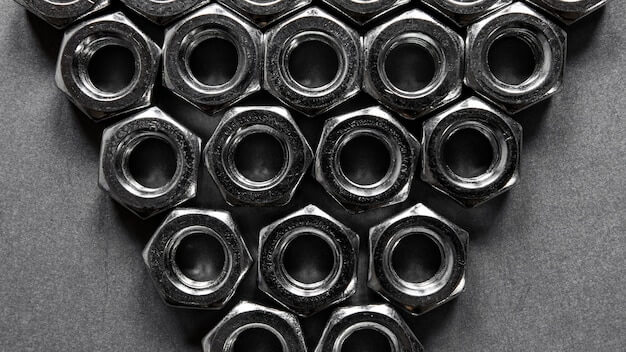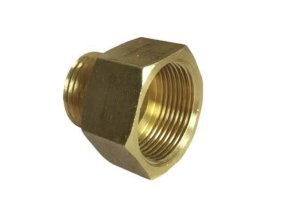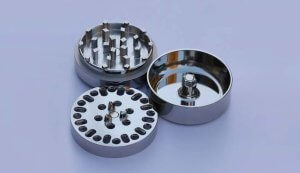Introduction to CNC Machining and its Importance in Manufacturing
CNC (Computer Numeric Control) machining, a cornerstone of modern manufacturing, plays a pivotal role due to its precision, efficiency, and versatility. This superior technology can manipulate a wide range of durable materials using programmed instructions to control machine tools like lathes, mills or routers, performing complex tasks at high speed with impeccable accuracy.
- Precision: CNC machines offer significant levels of accuracy, eliminating the scope for human error that is common with manual workmanship.
- Efficiency: Able to operate round the clock without pauses, these devices enhance production efficacy.
- Versatility: Easily configurable according to different design specifications, their adaptability contributes to various industries including automotive, aerospace, and medical equipment manufacturing.
A crucial aspect of CNC Machining is choosing appropriate materials for constructing the components. In this context, tool steel grades are compared for their characteristics such as toughness, wear resistance and ability to withstand operational stress – factors impacting longevity and functional competence of final products.
Understanding Durable Materials: Tool Steel
Tool steel, a hardy high-performance alloy, is an indispensable resource in CNC machining due to its unique balance of hardness and toughness. Made primarily of iron with substantial carbon content, tool steel stands out among metals for its remarkable resistance to deformation even when machined at high speeds or exposed to demanding industrial conditions.
- Durability, defined as the capacity to withstand wear, pressure,
or damage, translates directly into longer machine life, increased
accuracy, consistency of output, and overall cost-effectiveness in
CNC machining applications. - As durable materials minimize downtime caused by frequent part replacements and maintenance, enhancing productivity across operations.
- The choice of robust material like tool steel also contributes to advanced surface finishing capabilities, thereby influencing the performance of end-use products.
In essence, understanding the properties of tool steel helps manage long-term costs while maintaining superior quality levels in finished components.
Types of Tool Steels used in CNC Machining
Tool steels used in CNC machining include:
- High-Speed Steel (HSS): Contains tungsten, molybdenum, and chromium for high heat resistance.
- Carbon Tool Steel: Offers high strength and wear resistance, suitable for cutting tools and dies.
- Alloy Tool Steel: Contains additional alloying elements for improved hardness and toughness.
Comparing Tool Steel Grades
The different tool steel grades are each tailored for unique manufacturing applications, boasting varying levels of hardness, resistance to wear and corrosion, toughness, and machinability. For instance, the A-series air-hardening grades such as A2 and A6 offer excellent dimensional stability during heat treatment with lower distortion compared to water or oil hardening grades.
- A2, specifically known for its superior overall toughness and good machinability, is often deployed in forming dies, shear blades, punches, and brake dies.
- A6, on the other hand, possessing adequate wear resistance and high compressive strength combined with extra toughness, is commonly used for shear blades and cold work chisels.
Alternatively, D-series such as D2 provides higher carbon and chrome content resulting in exceptional wear resistance, making them ideal for long-run press tools, blanking dies, and forming dies. Conversely, Molybdenum high-speed steels like M1 and Tungsten types like T1 are characterized by their red hardness, which makes these grades perfect for milling cutters and broaches that operate at elevated temperatures.
Factors to Consider in Choosing the Right Tool Steel Grade
Selecting the correct grade of tool steel involves giving careful consideration to a myriad of factors, such as the work environment and the nature of the task at hand. Conducive manufacturing environments will demand certain properties from the material, such as resistance against corrosion or wear tear, while high pressure heavy-duty tasks require robustness and exceptional tensile strength.
A comprehensive understanding of these aspects greatly influences the effectiveness and lifespan of CNC machined parts. To illustrate, if we consider metal stamping scenarios where there is consistent high-pressure interaction with rough surfaces, a higher-grade tool steel like A2 or D2 should be chosen for their distinctive hardness and durability attributes. Similarly, when working in corrosive environments, grades like H13 become favourable due to their excellent heat and shock-resistant characteristics. Hence, it’s clear that the choice of tool steel grade significantly hinges on identifying the appropriate correlation between the job requirements and the unique characteristics offered by various tool steel grades.
Benefits and Limitations of Common CNC Machinery Materials
The fundamental materials commonly used in CNC machining exhibit a multitude of benefits. For instance, most grades of tool steel like the D2 or A2 are known for their exceptional hardness and resistance to abrasion which make them suitable for prolonged industrial usage. These tool steels also possess admirable resistance to distortion in high-heat treating processes.
However, despite these apparent advantages, potential users must acknowledge and consider few inherent limitations as well. One such limitation is their reduced toughness at higher hardness levels making them prone to chipping and cracking under impact stresses. Moreover, certain grades of this material may require proper maintenance to prevent corrosion and rust.
- D2 Tool Steel: Known for exceptional wear resistance yet it may be susceptible to chipping under impact stress.
- A2 Tool Steel: Popular for great balance of hardness and toughness but requires vigilant maintenance to prevent rust.
In conclusion, one should carefully assess both beneficial aspects and potential drawbacks of common CNC machinery materials before proceeding with any manufacturing process.
The Role of Material Durability in CNC Operation Success
Selecting the right materials for CNC machining plays a pivotal role in achieving optimal operation success. Especially when considering tool steel grades, each grade has distinct properties and characteristics that directly influence performance, durability, and reliability in varied operational contexts. From D-grade tool steels known for their high hardness ability to S-grade recognized for their exceptional resistive capacities against thermal shock, material choice significantly defines the output’s quality.
Incorporating insights from the earlier sections, recall how tool steel types were compared based on hardness, resistance to wear and tear, toughness, heat tolerance, and cost-effectiveness. Categorically selecting appropriate grade depends on these parameters which essentially determine efficient CNC operation outcomes. Races like A2 excel in comprehensive strength and toughness whereas M2 grade provides remarkable wear resistance with adequate toughness.
- When an application requires superior resistance against physical deformations delivered by extreme loads, choosing A2 becomes beneficial.
- In contrast, for operations requiring cutting tools enduring elevated temperatures without losing hardness, M2 serves as a viable option.
Hence, understanding the unique characteristics and compliant applications of different tool steel grades ensures not only seamless CNC operations but also extends machine lifetime enhancing overall productivity.
Other Articles You Might Enjoy
- Tool Steel Grades for CNC Machining: A Comprehensive Comparison
Introduction to Tool Steel in CNC Machining CNC (Computer Numerical Control) machining denotes a process employed in manufacturing where pre-programmed computer software manages the movement of factory machinery and tools.…
- CNC Machining for Custom Tooling: Tool Steel vs. Carbide Materials
CNC Machining: A Vital Component in Custom Tooling Computer Numerical Control (CNC) machining is a subtractive manufacturing technology that employs computers to control machine tools. This includes lathes, mills, routers,…
- Tool compensation in CNC machining, our quest for precision in CNC machining
Introduction to CNC Machining and Precision CNC (Computer Numerical Control) machining stands at the forefront of modern manufacturing, utilizing computerized controls to operate complex machinery with remarkable accuracy. This process…









